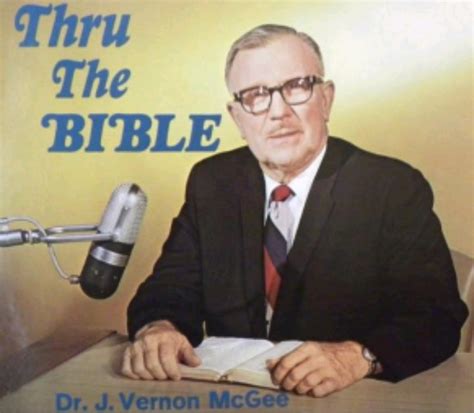A Quote by George Muller
Christians do not practically remember that while we are saved by grace, altogether by grace, so that in the matter of salvation works are altogether excluded; yet that so far as the rewards of grace are concerned, in the world to come, there is an intimate connection between the life of the Christian here and the enjoyment and the glory in the day of Christ's appearing.
Related Quotes
It is grace at the beginning, and grace at the end. So that when you and I come to lie upon our death beds, the one thing that should comfort and help and strengthen us there is the thing that helped us in the beginning. Not what we have been, not what we have done, but the Grace of God in Jesus Christ our Lord. The Christian life starts with grace, it must continue with grace, it ends with grace. Grace wondrous grace. By the grace of God I am what I am. Yet not I, but the Grace of God which was with me.
Many biblical passages teach that we're not saved by our own efforts but by the grace of God alone. But the same passages also tell us good works are an essential evidence of the salvation experience. We're not saved by good works, but for good works. It begins with God's grace, and it's sustained by his grace as you shape your character by what you do as you cross the bridge.
Grace stands in direct opposition to any supposed worthiness on our part. To say it another way: Grace and works are mutually exclusive. As Paul said in Romans 11:6, "And if by grace, then it is no longer by works; if it were, grace would no longer be grace." Our relationship with God is based on either works or grace. There is never a works-plus-grace relationship with Him.
Cheap grace is the idea that "grace" did it all for me so I do not need to change my lifestyle. The believer who accepts the idea of "cheap grace" thinks he can continue to live like the rest of the world. Instead of following Christ in a radical way, the Christian lost in cheap grace thinks he can simply enjoy the consolations of his grace.
The Kingdom of grace is nothing but.... the beginning of the Kingdom of glory; the Kingdom of grace is glory in the seed, and the Kingdom of glory is grace in the flower; the Kingdom ofgrace is glory in the daybreak, and the Kingdom of glory is grace in the full meridian; the Kingdom of grace is glory militant, and the Kingdom of glory is grace triumphant.... the Kingdom ofgrace leads to the Kingdom of glory.
This is the amazing story of God’s grace. God saves us by His grace and transforms us more and more into the likeness of His Son by His grace. In all our trials and afflictions, He sustains and strengthens us by His grace. He calls us by grace to perform our own unique function within the Body of Christ. Then, again by grace, He gives to each of us the spiritual gifts necessary to fulfill our calling. As we serve Him, He makes that service acceptable to Himself by grace, and then rewards us a hundredfold by grace.
Cheap grace is the grace we bestow on ourselves. Cheap grace is the preaching of forgiveness without requiring repentance, baptism without church discipline, Communion without confession.... Cheap grace is grace without discipleship, grace without the cross, grace without Jesus Christ, living and incarnate.
When I hear Christians say, "I don't do this, and I don't do that, and I am following a set of rules," I immediately recognize that they know very little about the grace of God. They are trying to live the Christian life in their own strength. But Paul says, "Be strong in the grace that is in Christ Jesus."
We live in a church culture that has a dangerous tendency to disconnect the grace of God from the glory of God. Our hearts resonate with the idea of enjoying God's grace. We bask in sermons, conferences, and books that exalt a grace centering on us. And while the wonder of grace is worthy of our attention, if that grace is disconnected from its purpose, the sad result is a self-centered Christianity that bypasses the heart of God.
The ultimate difference between God's wisdom and man's wisdom is how they relate to the glory of God's grace in Christ crucified. God's wisdom makes the glory of God's grace our supreme treasure. But man's wisdom delights in seeing himself as resourceful, self-sufficient, self determining, and not utterly dependent on God's free grace.
There is no better test as to whether a man is really preaching the New Testament gospel of salvation than the fact that some people might misunderstand it and misinterpret it to mean that it really amounts to this–that because you are saved by grace alone it does not matter at all what you do, that you can go on sinning as much as you like because it will abound all the more to the glory of grace. That is a very good test of gospel preaching. If my preaching and presentation of the gospel of salvation does not expose it to that misunderstanding, then it is not the gospel.
































